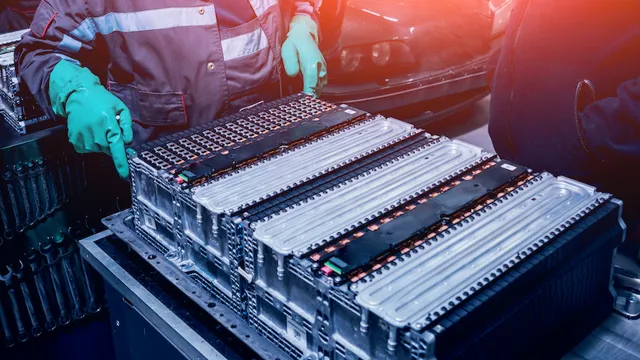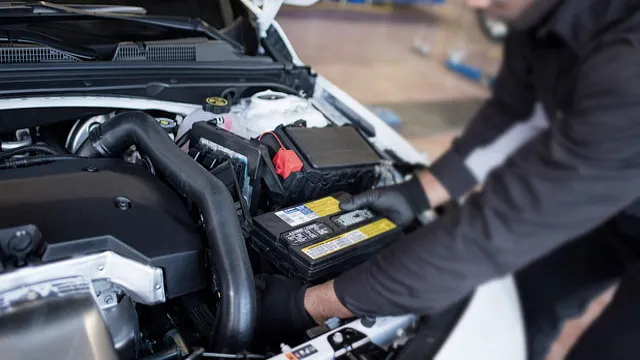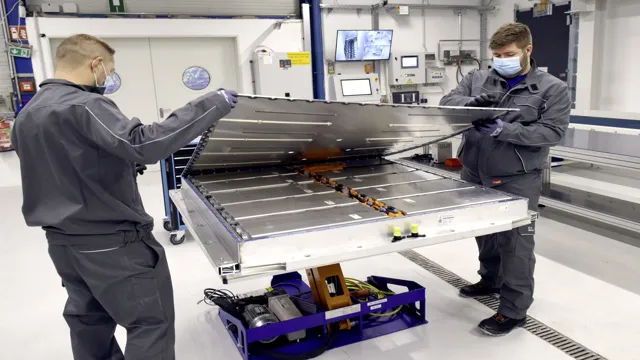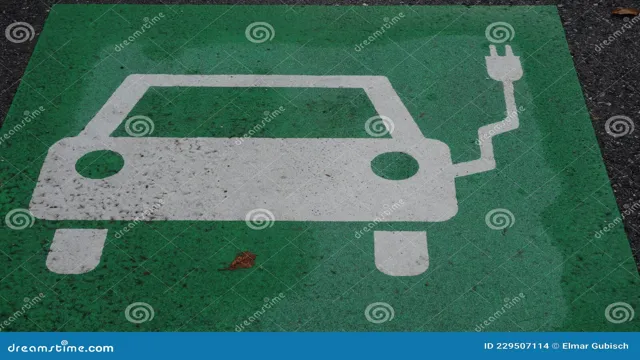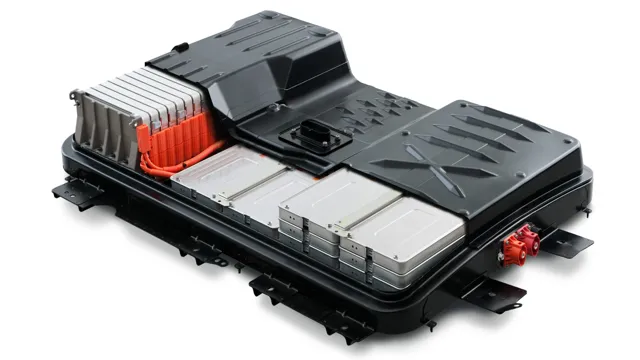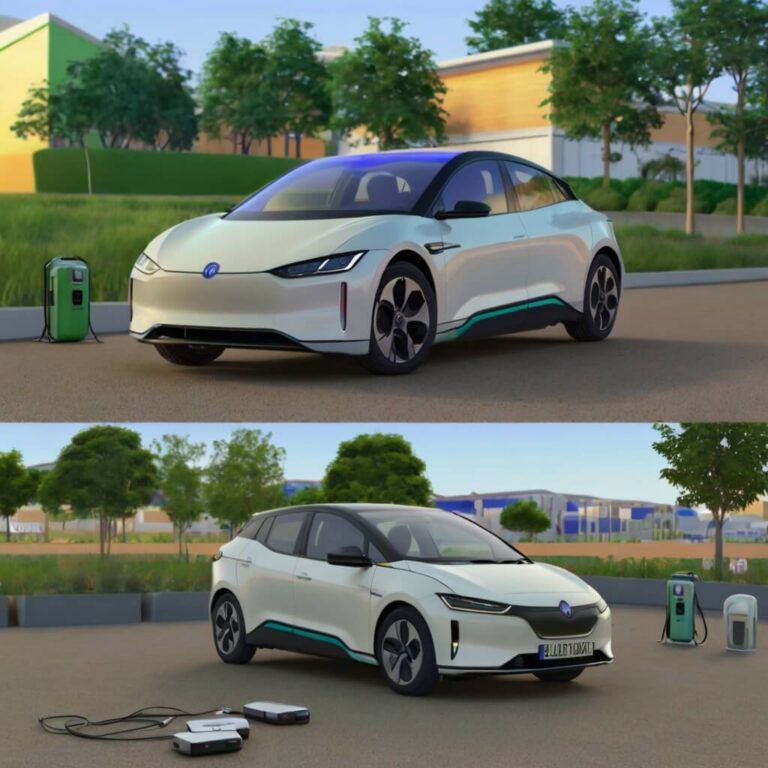Revolutionizing the Auto Industry: The Environmental Benefits of Electric Car Batteries
Electric cars have been hailed as a sustainable alternative to their gas-guzzling counterparts. While discussions about electric car batteries may often focus on their range and efficiency, something that is often overlooked is their impact on the environment. Electric car batteries have the potential to revolutionize the automotive industry.
Not only do they reduce greenhouse gas emissions, but they also have numerous other environmental benefits. In this blog, we’ll explore these benefits and how electric car batteries are helping to create a cleaner and more sustainable future. So, what exactly are the environmental benefits of electric car batteries, and how do they contribute to a greener world? Let’s find out.
Reducing Greenhouse Gas Emissions
Electric car batteries are an environmentally responsible way to reduce greenhouse gas emissions. These batteries are more efficient than traditional gas-powered engines and emit fewer pollutants. Additionally, electric cars can be powered by renewable energy, such as solar or wind power, further reducing their carbon footprint.
Advances in battery technology have also improved the range and performance of electric cars, making them a practical option for daily use. As more people opt for electric cars, the demand for sustainable energy sources will increase, leading to further reductions in greenhouse gas emissions. Overall, electric car batteries are an important tool in the fight against climate change.
Electric cars emit fewer greenhouse gases than gas-powered vehicles.
As the world moves towards more sustainable energy solutions, electric cars provide a viable option for reducing greenhouse gas emissions. These vehicles emit significantly fewer greenhouse gases than their gas-powered counterparts, which is good news for the environment. In fact, studies have shown that electric cars emit as much as 70% fewer carbon emissions than traditional combustion engines.
This is largely due to the fact that electric cars run on batteries, which means they don’t have any emissions from exhaust pipes. Additionally, the electricity used to charge the batteries can be generated from renewable energy sources, further reducing the carbon footprint. By choosing an electric car, drivers can make a positive impact on the environment without sacrificing convenience or performance.
So, why not make the switch to an electric vehicle today and start reducing your carbon emissions?

Low-carbon electricity can eliminate emissions.
Greenhouse gas emissions can have disastrous effects on the planet; fortunately, low-carbon electricity can eliminate these emissions completely. By using renewable energy sources like wind and solar energy, we can reduce carbon emissions in the energy sector massively. In addition, implementing energy-efficient practices in buildings and transportation can also help to eliminate emissions.
While it may take some effort to transition to low-carbon electricity, it is a necessary and worthwhile step towards combating climate change. By reducing our reliance on fossil fuels, we can protect our planet and create a more sustainable future for generations to come. Ultimately, it’s up to us to make the change that will eliminate our carbon footprint and reduce greenhouse gas emissions.
Reducing Air Pollution
Reducing air pollution is one of the most pressing environmental issues today. As our world becomes more industrialized, the amount of pollutants in the air has continued to increase, leading to negative impacts on our health and the environment. One solution to this problem is the use of electric cars, which rely on rechargeable batteries rather than fossil fuels to power their engines.
These batteries are not only much more efficient and environmentally friendly than traditional gas-powered cars, they also reduce the amount of harmful pollutants released into the air. By switching to electric cars, we can significantly reduce our carbon footprint and contribute to a cleaner, healthier planet. Additionally, advancements in electric car battery technology are continuing to make them more efficient and cost-effective, making them a viable alternative for more and more people.
By choosing to make the switch to electric, we can all play a role in reducing air pollution and creating a more sustainable future for ourselves and generations to come.
Electric cars do not produce tailpipe emissions.
Electric cars are not only trendy and modern, but they also have a crucial impact on our environment and health. With the rising concerns of air pollution, electric cars are becoming more popular for their ability to reduce harmful emissions. Traditional fossil fuel-powered vehicles are the major contributors to the emission of greenhouse gases and air pollutants.
However, electric cars do not produce tailpipe emissions, making them a cleaner option for transportation. Electric cars generate power using batteries that are charged by electricity from the grid, and the process is 100% emission-free at the point of use. By driving an electric car, we can reduce harmful emissions and make a positive impact on the environment and our own health.
So, if you’re considering buying a car, going electric might not only save you money in the long run, but it can also be a solution to reduce air pollution and protect our planet.
Reduced emissions can improve air quality in urban areas.
Reducing air pollution is one of the most pressing issues that impacts urban areas. Emissions from vehicles and industrial activity have been linked to respiratory issues and other health problems for people living in cities. However, by reducing emissions, we can improve the air quality in these areas.
There are many ways to achieve this, such as transitioning to electric vehicles, improving public transportation systems, and investing in renewable energy sources. By doing so, not only can we help reduce emissions and improve air quality, but we can also reduce our dependence on fossil fuels, which have further negative impacts on the environment. It’s crucial that we take action now to address this issue so that we can ensure a healthy and sustainable future for all.
Reducing Resource Consumption
One of the key environmental benefits of electric cars is their reduced resource consumption, particularly in the area of batteries. Unlike traditional gas-powered cars, electric vehicles run on rechargeable batteries, which generally consume far fewer resources since they can be used and reused multiple times. Even better, many electric car batteries are now being produced with more sustainable materials, like lithium, cobalt, and nickel, which have more environmentally friendly extraction and refining processes.
These improvements make it possible to reduce the environmental impact of battery production while improving the performance and range of electric cars. Additionally, recycling or repurposing these batteries can extend their lifecycle and reduce their environmental footprint even further. Overall, the shift to electric cars represents an important step toward a more sustainable future.
Electric cars reduce reliance on non-renewable resources like oil.
Electric cars are a resourceful and eco-friendly choice as they reduce the reliance on non-renewable resources like oil. Gone are the days when consumers used to worry about the skyrocketing fuel prices and fossil fuel depletion. Electric cars come with a battery that can be charged with electricity produced from renewable resources like wind and solar power.
These resources are sustainable and do not emit pollution, unlike oil. Reducing our dependence on fossil fuels helps us to preserve the natural resources of the earth, while at the same time reducing our carbon footprint. Moreover, electric cars are not only good for the environment but also provide a comfortable and smooth driving experience.
So, by switching to electric cars, we can reduce our resource consumption and help build a cleaner and greener future.
Lifecycle analysis shows lower resource consumption of electric car batteries.
Electric car batteries have been the subject of scrutiny for their environmental impact, but a lifecycle analysis shows that they actually have a lower resource consumption compared to traditional car batteries. This is because electric car batteries last longer and require less frequent replacements, leading to less demand for new batteries. Additionally, the materials used for electric car batteries can be recycled and repurposed, further reducing resource consumption.
By choosing electric cars, we are not only reducing our reliance on fossil fuels and reducing emissions but also contributing to a more sustainable future by lowering our resource consumption. So, the next time you’re in the market for a new car, consider the impact your choice can make on the environment and choose an electric car.
Conclusion
In conclusion, electric car batteries are undoubtedly a game changer in the world of transportation, offering a cleaner and greener form of mobility for the environmentally-conscious generation. Not only do they reduce harmful emissions and decrease our carbon footprint, but they also promote the use of renewable energy sources and sustainability in our daily lives. So, if you want to save the planet and enjoy a smooth and silent ride, switch to electric cars and give your battery a chance to shine bright like a green diamond!”
FAQs
What are electric car batteries made of?
Electric car batteries are typically made from lithium-ion cells, which contain a combination of lithium and other metals such as cobalt, nickel, and manganese.
Are electric car batteries better for the environment than traditional car batteries?
Yes, electric car batteries are generally better for the environment than traditional car batteries because they produce fewer greenhouse gas emissions during operation and can be recycled at the end of their life cycle.
How long do electric car batteries typically last before needing to be replaced?
The lifespan of electric car batteries can vary depending on a number of factors, but most manufacturers estimate that they will last anywhere from 8 to 10 years before needing to be replaced.
Are there any environmental concerns associated with the production of electric car batteries?
Yes, there are some environmental concerns associated with the production of electric car batteries, particularly around the mining of metals such as cobalt and nickel, which can have significant social and environmental impacts in the communities where they are extracted.
